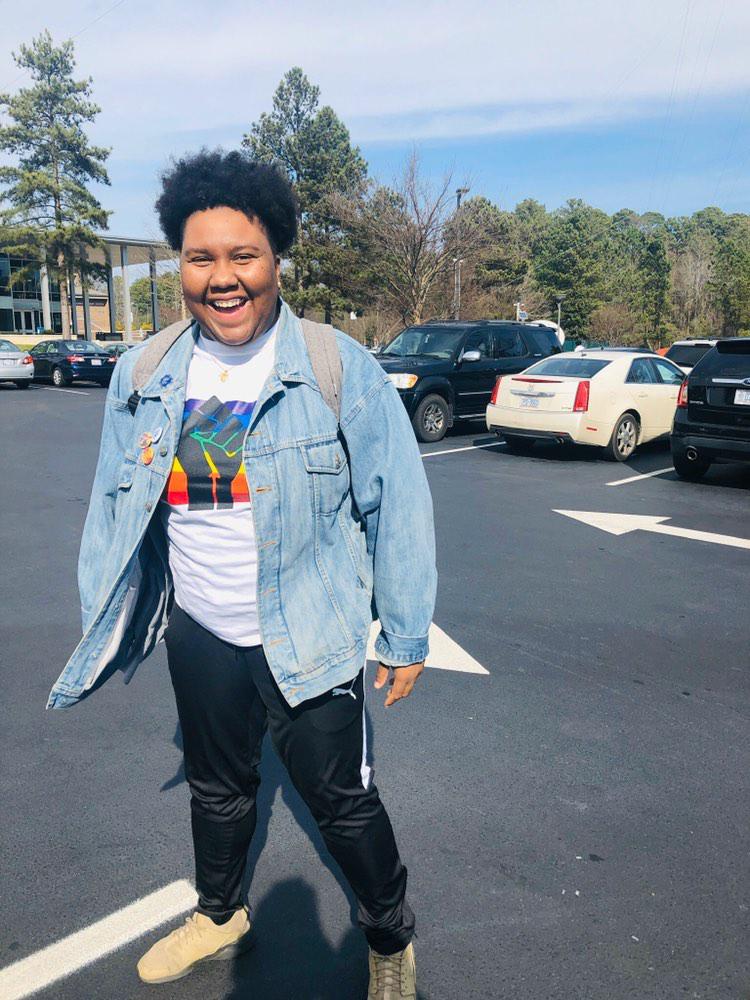A Coded Language
- Nieema Williams

- Aug 28, 2021
- 3 min read
Updated: Jan 25
Arts & Culture | the cookout | Nieema Williams
I love the way black people communicate with each other. I love the way Black people do our ‘thang.’ We have a private language, cultivated despite hundreds of years of culture cleansing, and forced assimilation whose mission was to strip away our native tongues. Having to meet and speak with life-threatening secrecy, our ancestors created this morse code within us. This is one code that we do not have to worry about being hacked because even if you did get in--you will be escorted out immediately if you do not tread lightly. This is the cookout invitation, the innate ability to clap on the 2 and 4, the ultimate if you know, you know!
Nothing beats that feeling of relief that comes over us when another black person enters the same room as us as if to say, “THANK GOODNESS! There are two of us now ... in case of an emergency.” This response, albeit traumatic, is linked to our oppression, and is one of our strongest share points as African American people. We created reading the room, and then coined the phrase! Our collective hypervigilance is deeply rooted ancestral interconnectedness for survival. We are not African yet are not treated justly enough to proudly claim American either. Our ancestors’ physical bodies built this country by hand, and our ingenuity, and intelligence continuously feeds the machine even now in 2021. Our power has always been in our words. Why do you think reading and writing was an offense worthy of death? Knowledge is power.
As the modern world progressed the literal silencing of black people digressed somewhat, however, we were not persuaded to come out of our cultured silos of understanding and familiarity. We can weave the grandest tales dating as far back as our grandparents-parents time, or simply tell what went down last night at the party and have the room enthralled to listen by leading with, “see what had happened was.” We have created our own villages of understanding without permission. Hair salons, barber shops, and churches have been our top three secret meeting places literally and figuratively. These places are sacred to our culture and have been pivotal in our survival. When speaking freely could get you lynched on any given Sunday, these places were the only refuge we had outside of our homes. I wish I could collect all the lessons, secrets, joy, tears, laughter, and tears left behind in these places and give them back to my people. We could use the reboot right now. In our own homes, churches, and neighborhoods we still speak with fondness and respect to our roots and for those who raised us, but we are educated, well read, professionals that can code-switch so effortlessly it angers and shames anyone who still believes in the mythical ignorance of the African American.
African Americans have always kept the lines of communication open in our own community. Our dialects and colloquialisms have been crafted and fine-tuned throughout history, custom fitting the era and location we silently existed in. Ancient Egyptians painted hieroglyphs on cave walls and in tombs. Encrypted field songs and Negro Spirituals were used to pass messages through plantations with clues to freedom hidden in the barely recognizable words, to keep secret from their masters. Fast forward to the 1970s: the emergence of Ebonics. This was a first attempt to legitimize Black Culture by accrediting us with our own official “language” however, it barely shined a light on the underlying issue meanwhile creating backlash for being “improper” and “uneducated.” The variety, consistency, and continuity of black communication is our strongest unifier, and at times our biggest challenge.
I believe James Baldwin said it best, “to be black and conscious in America is to be in a constant state of rage.” The humbling truth of this situation is that black people, African Americans are so wildly talented, that we can speak to each other with no words said. The quick eye-cut when you could be saying too much or the head nods in passing to acknowledge that we see each other when the world does not is one of our many superpowers. To be African American is to be in a constant dance of the between. There is an internal push for equity and justice and that is where both our fight and resistance live. I believe that is the last of our true African traits. Then there is an internal pull for acceptance of ourselves, and our place in THIS America, of our ancestral history. To always walk with our heads high because mama says “never let them see you cry,” but the exhaustion of holding up walls we never asked for and we surely never deserved.









Comments